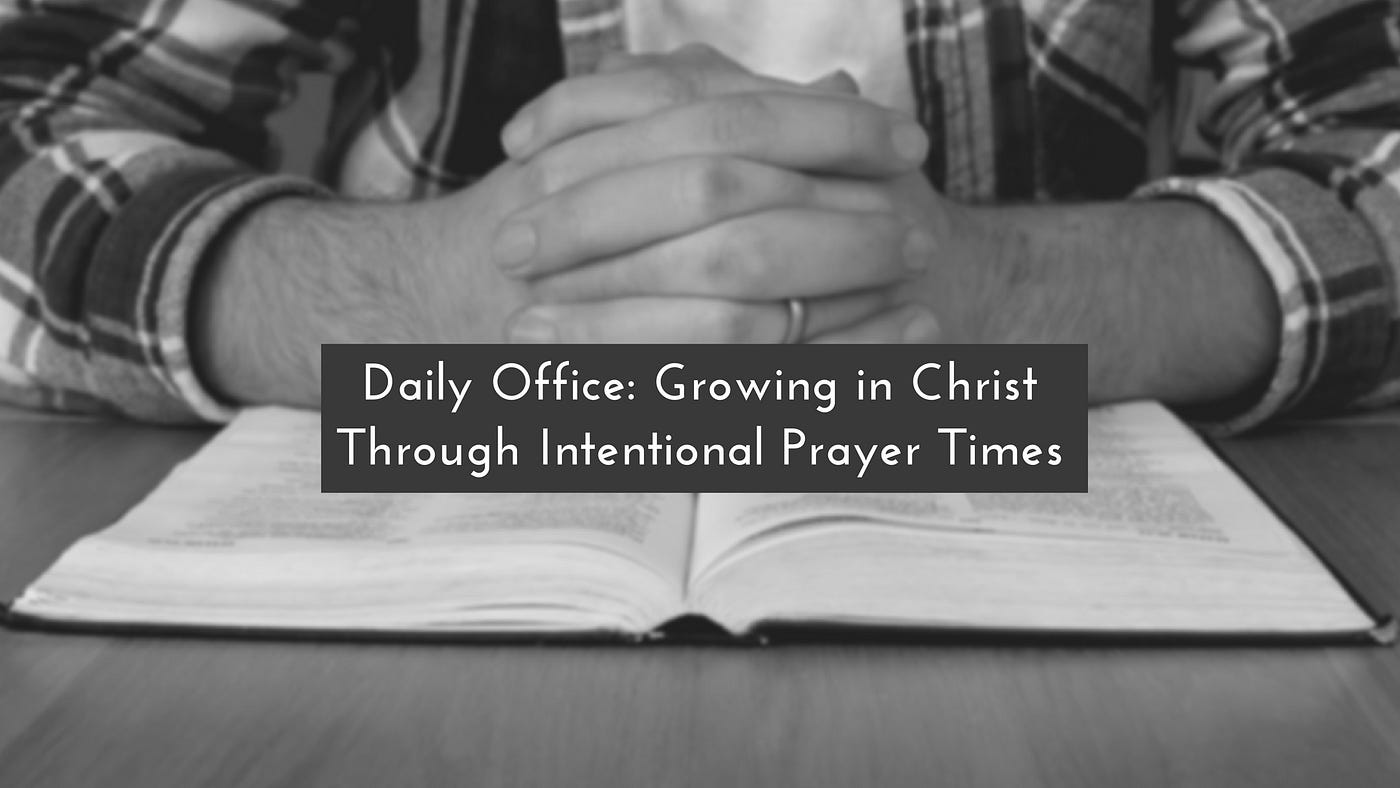Now here we are 500 years later and even the two minimal prayer offices have become strangers to the life of the congregation and even more alien to the daily lives of God's people. We have ended up, at best, as a Portals of Prayer kind of Christian where our exposure to God's Word is a part of a verse, the devotional commentary is a brief paragraph, and the prayer at the end is a one-liner. By the way, I am not here disparaging Portals of Prayer. I am challenging the idea that this is enough and that we no longer desire nor are willing to work for much more than this. It is not the small quarterly volume that is amiss but the desire of a people who no longer wish to be ordered by God's Word and their time ordered by a discipline of daily prayer. It is not the publication that is the problem but the people and pastors who think that a daily discipline of matins and vespers in God's House is not worth it when there are so many other more important things to do.
Pastors are no better than their people at maintaining the discipline of prayer. Perhaps we are worse. We can presume that nearly everything we do as pastors has some sort of devotional aspect to it -- from sermon prep to Bible study prep. Because of this, we are off the hook for maintaining and observing an ordered devotional life. We do not need to be intentional if everything we do is tangentially devotional -- at least that is the lie we tell ourselves (or, perhaps more accurately, Satan has taught us). I lament that at this stage of my life I should have had in place a more ordered devotional life and should have led the congregation to this. Wretched man that I am.
Of course, I have plenty of people to blame for this (other than myself). Nobody in seminary ever suggested that such a thing was all that important or that the prayer offices were anything other than occasional services (at least now, in this stage of our history) though I was urged to pray. Nobody on vicarage modeled this to me even though I was constantly urged in general to pray. Nobody in either of may parishes thought it was a good use of my time to pray myself as part of my pastoral duties or to lead the one or two others who might show up in those prayer offices even though I was expected to pray. The result is an unmet longing and a lifetime of regret.
I will say it clearly. If you are a younger pastor, don't follow my example. Maintain a congregational life around the daily office. Let it order your life so that it may order theirs. Don't count attendance. Do not judge by impact but by faithfulness. Maybe, just maybe, the people will learn from your example. Just in case they don't, preach and teach about it and regularly invite them to the prayer offices. No, we will not get back the expanded number but the morning and evening prayer should be minimums -- the standard by which we judge ourselves and others judge us. Make sure that you schedule a non-Sunday Eucharist. The Divine Service is not simply for Sundays and should not become its exclusive. A daily Eucharist is even better but that is a lot to expect and manage. Morning and evening prayer is a big enough goal along with one weekday Eucharist. After all, the worship, sacrifices, and prayers in the Temple in Jerusalem continued no matter what was going on around the Temple. The plume of incense smoke and the sounds of sacrifice continued as witness to those who could not or would not be there. So also the church bells rang for the daily offices and the Angelus as reminders to those where they were to pray. They would have had a memorized version of Matins and Vespers so that they could pray in the fields or market. If they could not be in the church, they could pray where they were with the Church. All of these are more worthy of our time and attention than half the other stuff we do as pastors. Really.

1 comment:
It's about time a Lutheran pastor said this. I've been waiting for it to be said for over 30 years when I first had my doubts about Lutheranism as a viable religion which encourages prayer and worship but almost strictly at an individual level. The liturgies for whom Bach and Telemann and Hassler and Praetorius wrote for have all been dissolved for shorter services guaranteed to get out in 45 minutes so people can make the kickoff at noon. Vespers is all but forgotten. At least the pagan Episcopalians kept their choral evensong. The blame rests with the seminaries where students are not expected to go to daily services beyond a hymn and a sermon and a short prayer. Though you diagnose the problem, there will be no liturgical renewal. You and your fellow boomers have neutered any chance of that happening. Churches will continue to be large portals or prayer meetings with sermon and a couple hymns. Congrats.
Post a Comment